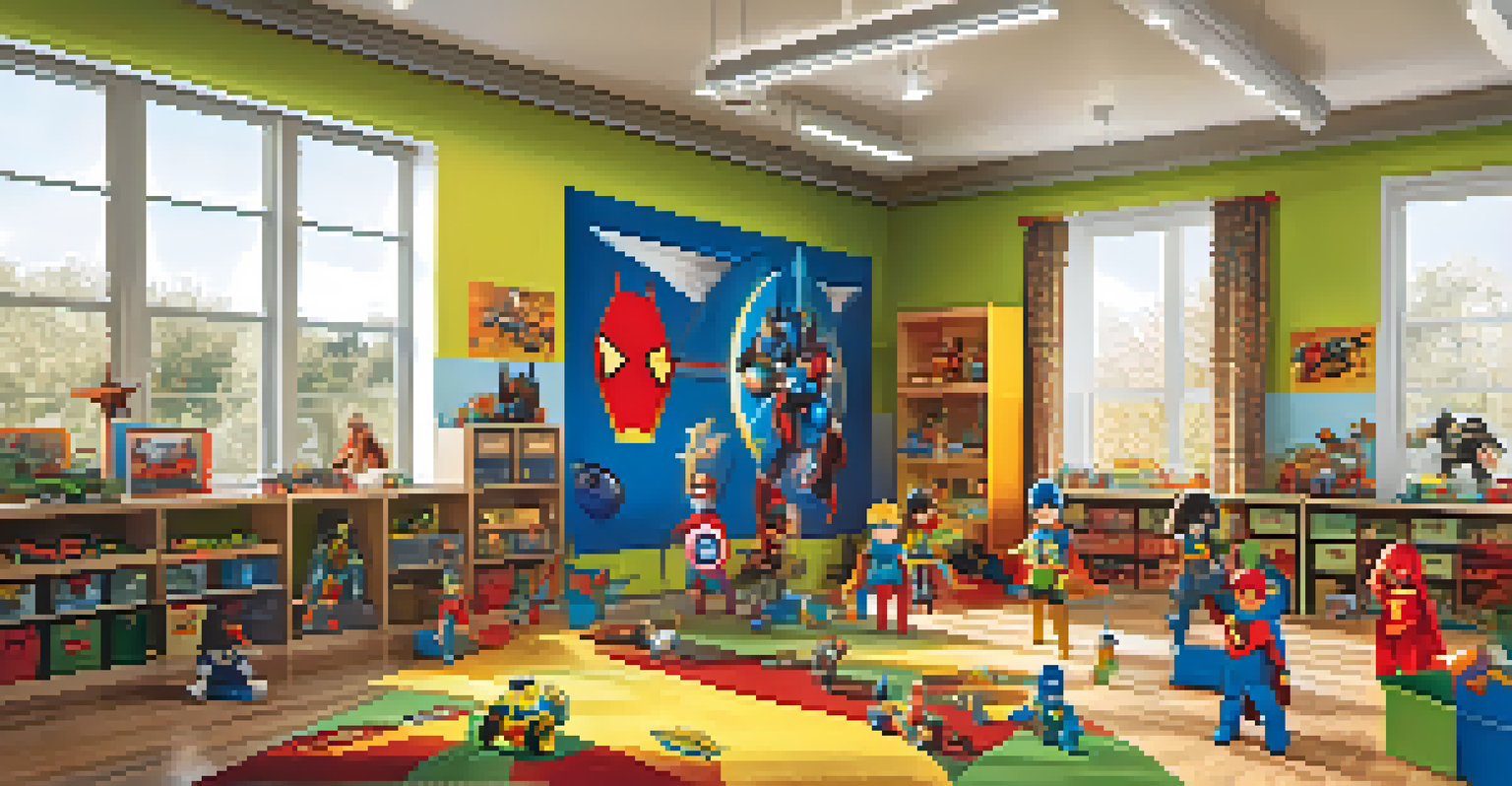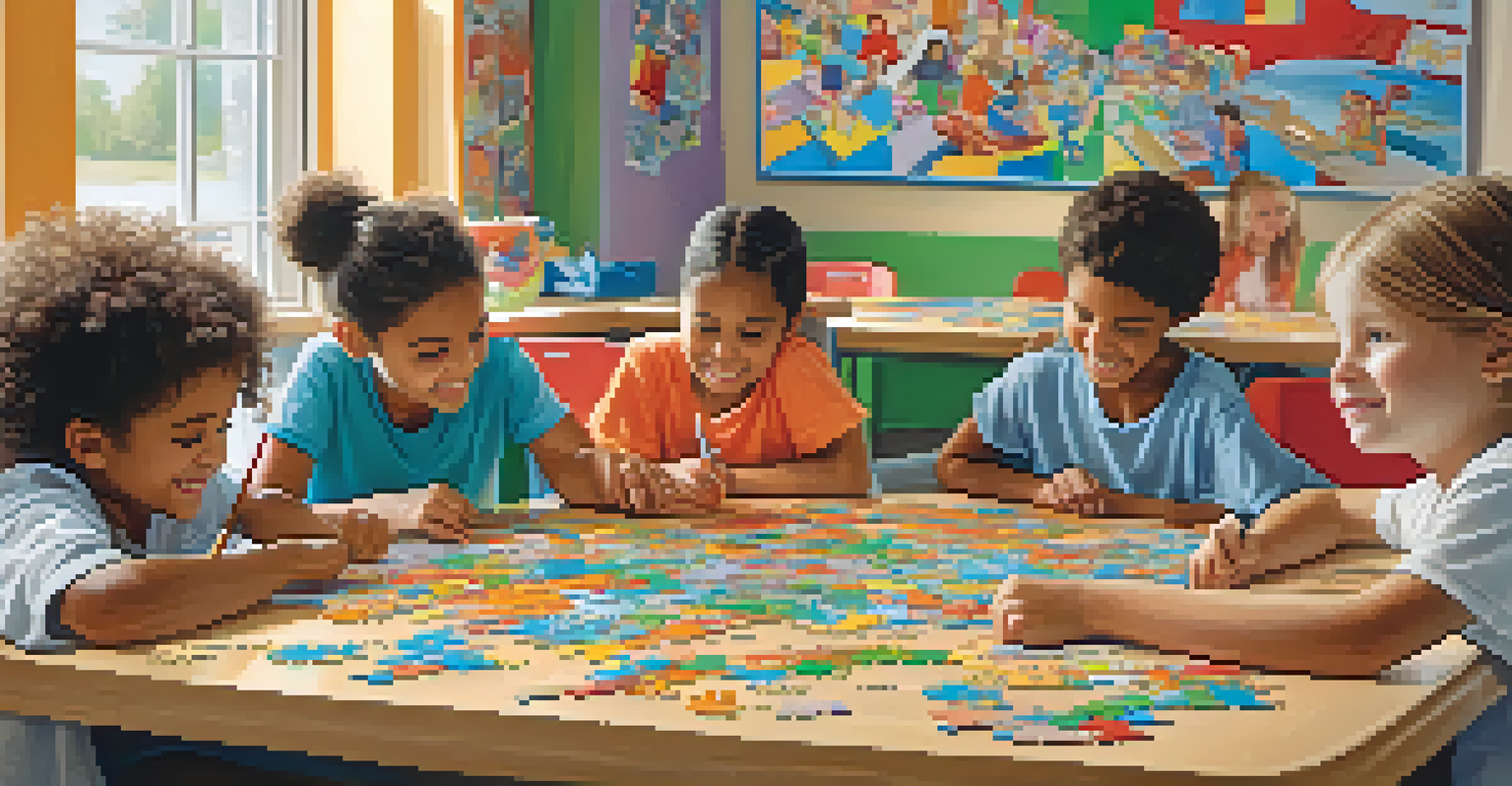Play as a Tool for Enhancing Problem-Solving Skills in Kids

Understanding Problem-Solving Skills in Children
Problem-solving skills are essential for children's development, helping them navigate challenges throughout life. These skills involve critical thinking, creativity, and the ability to analyze situations. As children grow, mastering problem-solving equips them to tackle everything from schoolwork to social interactions.
Play is our brain's favorite way of learning.
These abilities are not just about finding the right answer; they also encompass the journey taken to reach that answer. Encouraging kids to explore different solutions fosters resilience and adaptability. This is crucial as they learn to cope with setbacks and view challenges as opportunities.
Play provides a natural environment for children to enhance these skills. Through games and imaginative scenarios, kids can experiment with problem-solving without the pressure of real-world consequences. This playful approach allows them to develop confidence in their abilities.
The Role of Play in Cognitive Development
Play is a powerful tool for cognitive development, engaging various aspects of a child's brain. During play, children use imagination, develop language skills, and practice reasoning. These activities stimulate neural connections, enhancing their ability to think critically.

For instance, when children play with building blocks, they not only learn about shapes and balance but also strategize about how to construct stable structures. This hands-on experience is invaluable as it combines learning with fun. It’s through this process that kids begin to understand cause and effect.
Play Enhances Problem-Solving Skills
Engaging in play allows children to develop critical thinking and creativity, essential for tackling challenges.
Moreover, play often involves trial and error, which is a fundamental part of learning. Kids learn to assess situations, make decisions, and reflect on outcomes, all while enjoying themselves. This informal learning environment encourages exploration and curiosity.
Types of Play That Foster Problem-Solving
Different types of play can significantly enhance problem-solving skills. For example, role-playing games encourage children to step into different characters, allowing them to see situations from various perspectives. This empathy-building is essential for collaborative problem-solving in the future.
The greatest gifts you can give your children are the roots of responsibility and the wings of independence.
Similarly, puzzle games and strategy board games require critical thinking and planning. These games challenge children to devise strategies and think several steps ahead. As they navigate complex scenarios, they learn the importance of patience and persistence.
Outdoor play also presents unique problem-solving opportunities. Climbing trees or building forts with friends requires teamwork, negotiation, and creative thinking. These experiences teach kids to work together and find solutions to physical challenges.
Emotional Intelligence and Play
Emotional intelligence plays a crucial role in effective problem-solving, and play is a fantastic way to nurture it. Through play, children learn to express their feelings, recognize emotions in others, and develop empathy. These social skills are essential when collaborating with peers to solve problems.
For instance, during group play, children often encounter conflicts that require negotiation and compromise. Learning to navigate these situations helps them understand different viewpoints and find common ground. This emotional awareness becomes a vital asset in their problem-solving toolkit.
Emotional Intelligence Through Play
Play nurtures emotional intelligence, helping children learn empathy and collaboration, which are vital for effective problem-solving.
As children engage in imaginative play, they also explore various emotional scenarios, learning how to respond appropriately. This emotional practice enhances their overall ability to deal with real-life challenges, equipping them with the tools necessary for effective problem-solving.
Creating a Play-Friendly Environment
To maximize the benefits of play for problem-solving, it's essential to create a play-friendly environment. This includes providing diverse materials and resources that inspire creativity. Think of open-ended toys, art supplies, and outdoor spaces that encourage exploration and invention.
Also, it’s important to allow unstructured playtime. Children thrive when given the freedom to explore their interests and engage in self-directed activities. This autonomy fosters independence and decision-making skills, critical components of problem-solving.
Encouraging group play and collaboration is equally vital. When children play together, they share ideas, negotiate roles, and solve problems collectively. This social interaction not only boosts their problem-solving skills but also strengthens their relationships with peers.
The Impact of Technology on Play and Problem-Solving
In today's digital age, technology plays a significant role in children's play. While screen time can be beneficial, it’s important to strike a balance between digital and physical play. Many educational apps and games promote problem-solving skills by presenting challenges that require critical thinking.
However, excessive screen time can limit opportunities for hands-on experiences. Encouraging children to engage in both digital and physical play ensures they develop a well-rounded approach to problem-solving. Activities like coding games can complement traditional play by introducing logic and strategy.
Balance Digital and Physical Play
Integrating both digital and physical play experiences fosters a well-rounded approach to problem-solving and cognitive development.
Ultimately, leveraging technology should enhance, not replace, traditional play. By integrating both, children can benefit from the cognitive and emotional growth that comes from varied play experiences, preparing them for future challenges.
Encouraging Lifelong Learning Through Play
The benefits of play extend far beyond childhood, fostering a love for lifelong learning. When children experience the joy of discovery through play, they develop curiosity that stays with them as they grow. This intrinsic motivation is key to becoming proactive problem solvers in adulthood.
As they encounter new challenges, the problem-solving skills honed during play will guide their approach. They’ll be more likely to explore, experiment, and ask questions rather than shy away from difficulties. This mindset is crucial in today’s fast-paced world where adaptability is paramount.

Encouraging play as a tool for learning sets children on a path of continuous growth. By valuing play, we instill the understanding that learning can be fun and engaging, paving the way for future success in both personal and professional realms.